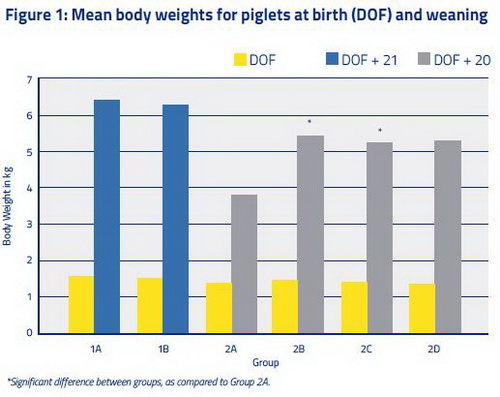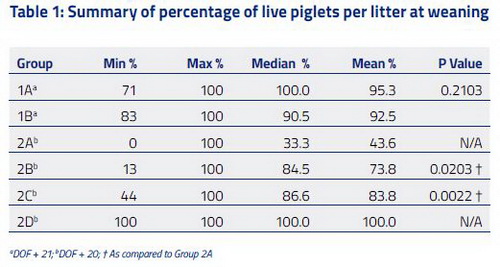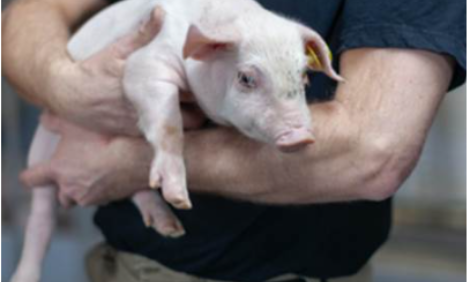



Safety and Efficacy of a Novel Modified Live PRRSv Vaccine in Bred Gilts and Sows
Porcine reproductive and respiratory syndrome virus (PRRSV) can be devastating to breeding herds, due to losses resulting from reproductive failure.Additionally, piglets born to affected dams suffer from increased weakness at birth, poor growth performance, increased susceptibility to respiratory infections, as well as higher pre-weaning mortality. Vaccination prior to breeding is considered to be of value for decreasing these detrimental effects.
MATERIALS AND METHODS
Two blinded, completely randomized studies were conducted to establish safety (Study 1) and efficacy (Study 2) of a new Europeanderived, PRRSV modified live virus (MLV) vaccine; ReproCyc® PRRS EU. A total of 110 non-bred PRRSV negative commercial mixed breed gilts were used in Study 1 and 2, respectively. In Study 1, vaccinates received a 10x overdose of the MLV vaccine (group 1A) while control gilts received a placebo (group 1B) on Days 0 and 14 of the study. All gilts were 90 + 3 days of gestation at the time of first vaccination and were clinically healthy. In Study 2, two vaccinate groups (2B and 2C) received a low and high titer of the MLV vaccine while the control gilts (groups 2A and 2D) received a placebo approx. 28 days prior to breeding on Day 0 of the study. On Day 118 (approx. 90 days of gestation), groups 2A, 2B and 2C received a virulent heterologous European PRRSV challenge (Isolate 205817). Gilts in both studies were observed for local and systemic reactions following treatment. Primary safety and efficacy criteria included percentages of live, stillborn and mummified piglets per litter at farrowing and live piglets, piglet viremia and viral load, piglet clinical signs and average daily weight gain (ADWG) at weaning.
RESULTS
In Study 1, Gilts had no systemic reactions to vaccination and viremia. There were no relevant differences for live born piglets, general health during the suckling period, ADWG, piglets at weaning, lung pathology, and viral load in lung tissue. In Study 2, vaccinated gilts had positive serological responses as early as 14 days post-vaccination and lower incidence of viremia following challenge.
Vaccinated gilts had more healthy live born and weaned piglets per litter with higher ADWG. Vaccinates had fewer weak live and mummified piglets per litter, less piglets with abnormal clinical signs and viremia.
CONCLUSION
The results from these studies are supportive of the clinical safety and efficacy of ReproCyc® PRRS EU in breeding females against virulent PRRSV infection. It was shown that administration of one IM dose of the novel MLV vaccine to gilts approximately 1 month prior to breeding is a viable option for preventing production losses associated with PRRSV.
P.H. Rathkjen, X. De Paz, O. Gomez-Duran, J. Kroll, C. Kraft, F.X. Orveillon, M. Piontkowski
If you want to read more abstracts like this one visit: https://www.prrs.com/en/publications/abstracts/











